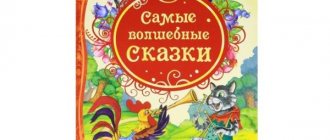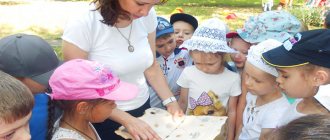Game traveling around countries for younger schoolchildren
Interactive playground for children 8-12 years old “Games of the Nations of the World”
Description: The interactive playground is a journey through 5 countries: Belarus, Germany, the United States of America, Austria, Greece. The children get acquainted with national traditions, cuisine, and outdoor games of different countries. Number of participants: 12 people, student age: 8-12 years. Goal: to develop a tolerant attitude among students towards people of other nationalities. Objectives: — to introduce the culture and national traditions of different countries of the world; — develop skills of interaction with peers; - cultivate a friendly and responsive attitude towards people. Equipment: laptop, picture of a flower with petals, ring, 2 toy cars, scarf, ball.
Progress of the event
Presenter: The guys live on different continents and in different countries, but they are united by common interests and a desire to play outdoor games. Today we will join them and play games of the peoples of the world. And a magic flower will help us travel to different countries. In order for us to find ourselves in one country or another, we must say the magic words of the spell: Fly, fly a petal Through the North, through the South, Come back, having made a circle As soon as you touch the ground, Be, in my opinion, lead (The leader tears the petal from the flower, on in which the country is written).
“Take us to Belarus.”
Host: Guys, here we are in Belarus. Belarusians greet each other with the words: “Good Zen!” Traditions:
Belarusians are friendly and good-natured people, they always welcome guests.
The pride of the country is its preserved folklore - songs, dances, games, fairy tales, legends, riddles, floorboards and sayings of ancestors. The same can be said about folk crafts: pottery, wicker and straw weaving, weaving, embroidery, glass painting and other activities. National dish:
potato pancakes.
Host: And now, you and I will play the national game of the Belarusians “Pyarscenak”. How to play:
Players stand in a circle, holding their hands in front of the boat.
One leader is selected. The presenter holds a small shiny object (ring) in his hands. The leader walks in a circle and places a ring in everyone’s hands. Presenter: I’m going all the way, I’m putting Matsney’s hands on everything, I’m going to look, don’t look. The leader quietly puts a ring on one of the children, and then leaves the circle and says: “Pyarstsenachak, pyarstsenachak, go out to ganachak!” The one with the ring in his hands runs out, and the children must try to hold him back and not let him out of the circle. After the words: “Pärstsenachak, pyärstsenachak, go out to the ganachak!” – all players must hold hands so as not to let the player with the ring in his hand leave the circle. Presenter: Fly, fly petal Through the North, through the South, Come back after making a circle As soon as you touch the ground, Be, in my opinion, lead (The presenter takes a petal from the flower on which the country is written).
"Take us to Germany."
Host: And now we are in Germany. German greeting: “Guten tag!” Traditions:
at the end of summer, German first-graders walk around with large multi-colored bags, and in the bags are not flowers for the teacher, but sweets: marmalade, chocolate, dates, dried tangerines, waffles, gingerbread.
National dishes:
Bavarian sausages, “Sauerkraut” – stewed sauerkraut.
Presenter: National game of the Germans “Auto Racing”. How to play:
The game involves at least 2 people.
You need to take 2 toy cars, two wooden sticks and two long cords. Toy cars must be tied to cords, which in turn must be tied to sticks. Wooden sticks should be held in the hands of two children. The essence of the game is to, on command, wind the cord around a stick as quickly as possible, thus pulling the car towards you. Presenter: Fly, fly petal Through the North, through the South, Come back after making a circle As soon as you touch the ground, Be, in my opinion, lead (The presenter takes a petal from the flower on which the country is written).
"Take us to the United States of America."
Host: Guys, you probably all wanted a little smile. The US culture is a culture of successful people. And a smile is considered in this country to be a symbol of human well-being. If an American smiles, it means everything is “ok” with him. Americans greet guests: “Welcome!” Traditions:
Americans of all ages love to send and receive Valentine's cards.
Valentines are a symbol of love. Valentines often come with soft toys, mostly bears, candies, and jewelry. Children in elementary schools make valentines for their classmates and put them in a large decorated box, like a mailbox. On February 14, the teacher opens the box and distributes valentines. After the students read the valentines they received, they all celebrate the holiday together. National American dishes:
turkey, steak, apple pie, pizza.
Host: The favorite game of American children is “The Most Attentive.” How to play:
All participants sit in a circle.
The presenter says: “Nose, nose, nose.” And he takes his nose with his hand, and at the fourth word “nose” he touches, for example, his ear. Those sitting should do everything as the presenter says, and not repeat his movements. Whoever makes a mistake is out of the game. The last player, the most attentive, wins. Presenter: Fly, fly petal Through the North, through the South, Come back after making a circle As soon as you touch the ground, Be, in my opinion, lead (The presenter takes a petal from the flower on which the country is written).
"Take us to Austria."
Host: Guys, we found ourselves in Austria. The Austrians' greeting sounds "Servus". Traditions:
Women love to open doors.
But in public transport it is customary to give up your seat only to the elderly and pregnant women. Calling by name is used extremely rarely - and only between well-known people. A characteristic feature of local life is a certain distance between people. Even well-known people rarely get closer to each other at a distance less than an outstretched arm and sit at the table at a considerable distance from each other by our standards. National dish:
Wiener schnitzel.
Presenter: National game of the Austrians “Find the scarf!” Progress of the game:
Players choose a driver who hides the handkerchief, and the rest close their eyes at this time.
The scarf is hidden in a small area, which is marked in advance. Having hidden the scarf, the player says: “The scarf is resting.” Everyone begins to search, the search is directed by the one who hid the scarf. If he says “warmth”, the person walking knows that he is close to the place where the scarf is located, “hot” - in the immediate vicinity of him, “fire” - then he must take the scarf. When the seeker moves away from the place where the scarf is hidden, the driver warns him with the words “cool”, “cold”. The one who finds the handkerchief does not talk about it, but quietly sneaks up on the player who is closest to him and hits him with the handkerchief. In the next round he will hide the scarf. Presenter: Fly, fly petal Through the North, through the South, Come back after making a circle As soon as you touch the ground, Be, in my opinion, lead (The presenter takes a petal from the flower on which the country is written).
"Take us to Greece."
Host: And the last country we will visit today is Greece. The Greek greeting sounds like “Kalimera”. Traditions:
Greeks are open and hospitable people.
They treat strangers kindly and try not to openly show that they don’t like something. These people are not very punctual. Adults and children wear a turquoise bead as an amulet, sometimes with an eye drawn on it. For the same reason, turquoise beads adorn the necks of horses and donkeys in villages and the rearview mirrors of cars. National dishes:
souvlaki - pieces of kebab meat with potatoes, gyros - slices of fried meat with French fries, feta cheese.
Host: And now it’s time for the Greek game “Ball in the Palm.” Progress of the game:
The participants of the game line up 30-40 cm from each other.
Outstretched arms with open palms are held behind the back. One of the players, walking along the line, pretends as if he wants to drop a ball into someone's palm. Players shouldn't look back. Finally, he drops the ball into his hand, and the player who received it breaks out of the line. The neighbors in the line must grab him before he moves. But at the same time they do not have the right to leave the line. If they fail to capture him, he can return to his place and the game continues. If caught, he changes places with the leader, and the game continues. Host: Guys, our journey through the countries is coming to an end. Thank you to everyone for your active participation and curiosity in the interactive platform. I hope that the knowledge gained will be useful to you in life!
We recommend watching:
Game “Field of Miracles” for elementary school students on the topic: Cartoons Game for elementary school students “Animals of the Urals” with a presentation Games for 1st grade Game for elementary school students with a presentation on the topic: Insects
Similar articles:
Game "Field of Miracles" in 4th grade. Inventions
Game Lucky Chance, 4th grade
Game "Lucky Chance" for elementary school, grades 3-4
Game "Clever and smart girls" in elementary school
Game “What? Where? When?" for elementary school. Questions and answers




